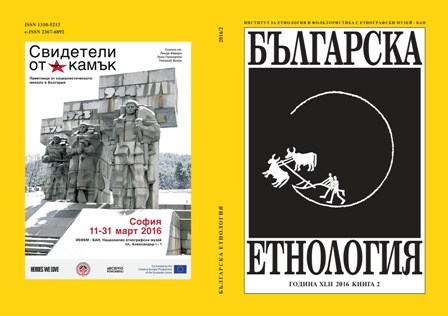
We kindly inform you that, as long as the subject affiliation of our 300.000+ articles is in progress, you might get unsufficient or no results on your third level or second level search. In this case, please broaden your search criteria.

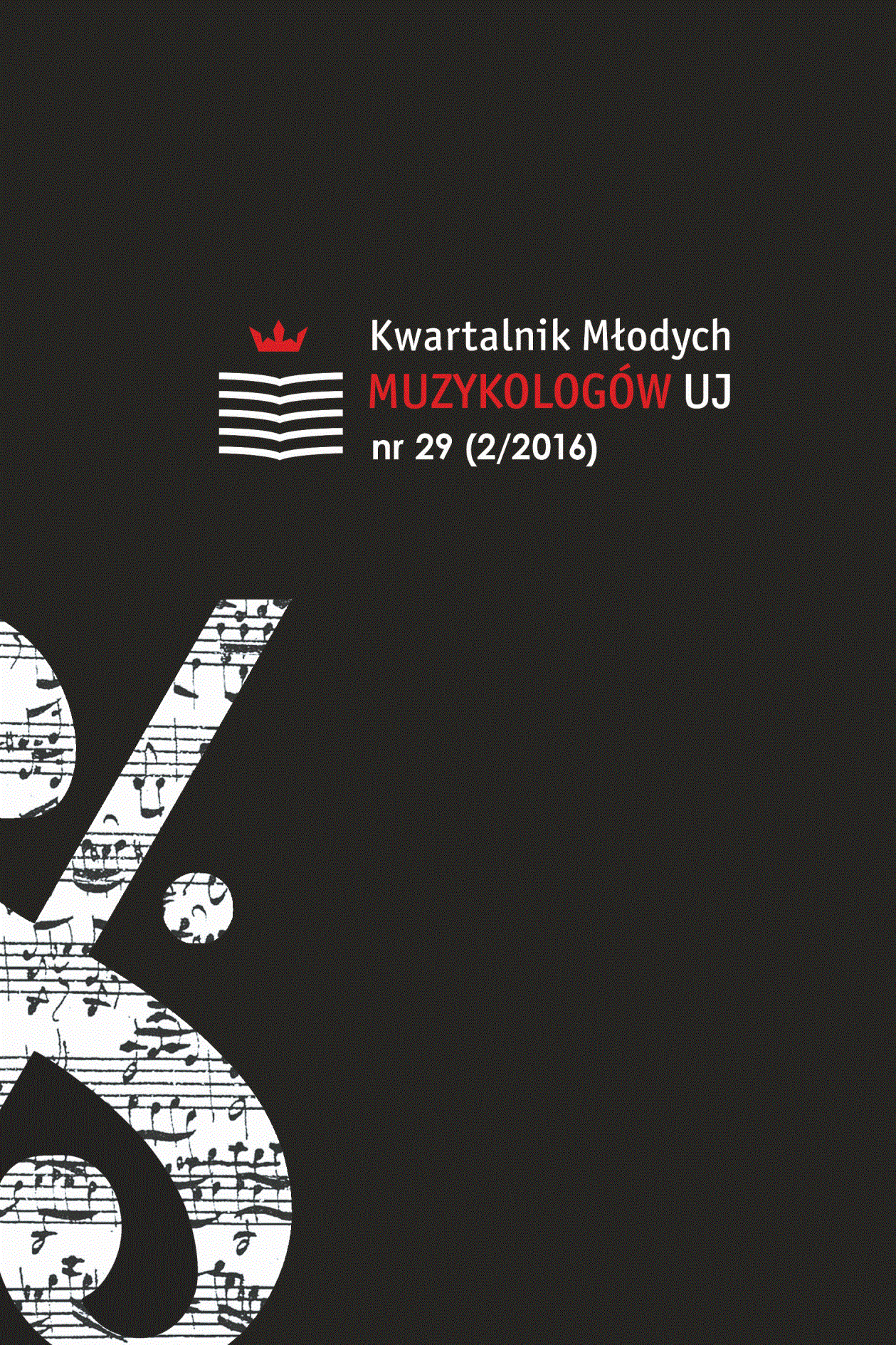
The purpose of this paper is to examine the way in which the experience of the Holocaust can be represented, embodied and even relived in or through music. The category of experience thus serves as a main methodological tool in this survey, helping to reconstitute the process of expressing it through music, specifically in Arnold Schoenberg’s A Survivor from Warsaw Op. 46. A related point to consider is the composer’s engagement in the fight for human rights just before the World War II, a fact that is not yet widely recognized. A brief overview of Schoenberg’s religious, social, and political environment is followed by the history of the Survivor’s… origins, analysis of its literary text, and, finally, interpretation. While discussing the ethical limits of the Holocaust representation, the opinions of Theodor W. Adorno, Ernst van Alphen, Berel Lang, and Giorgio Agamben are consulted.
More...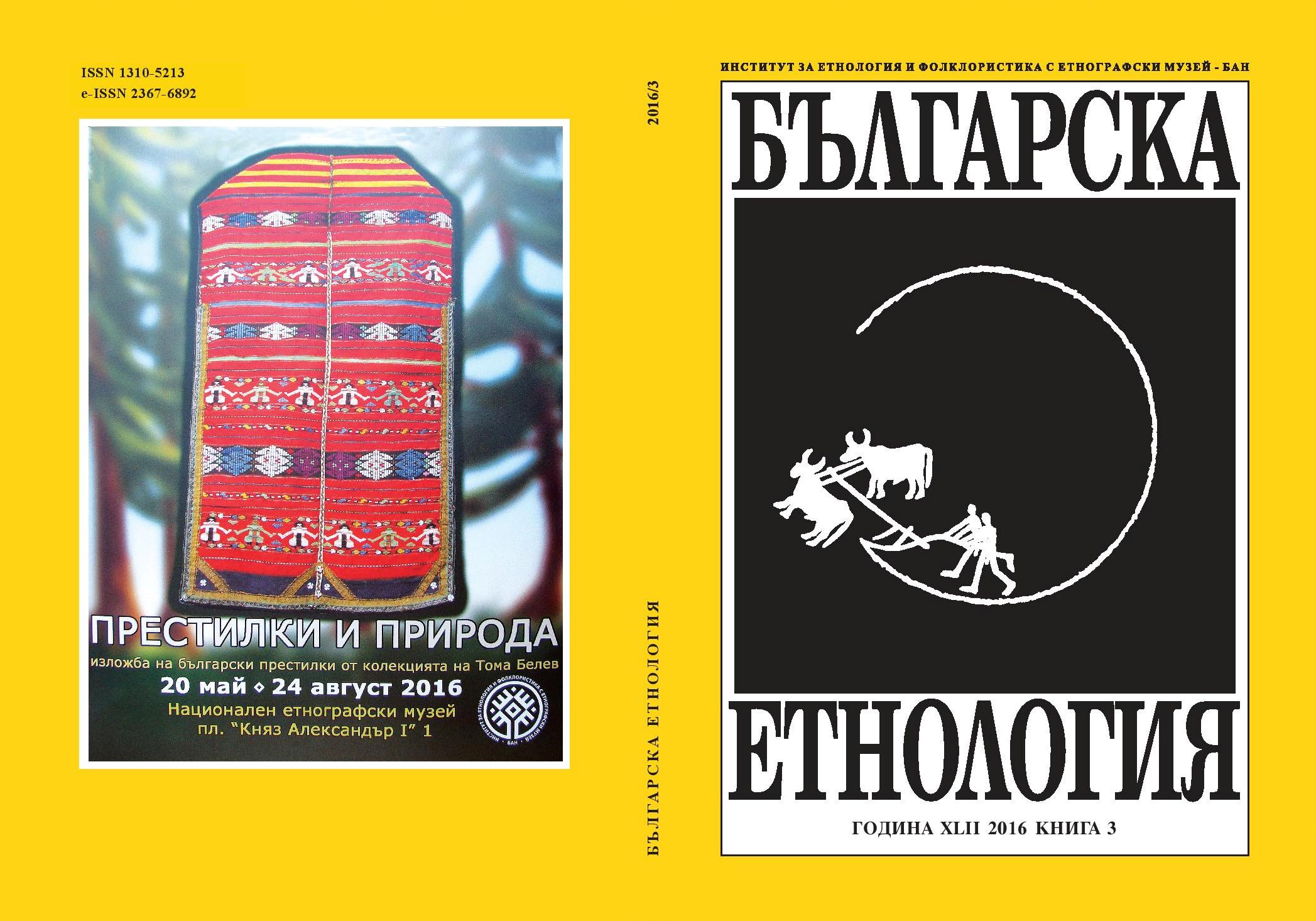
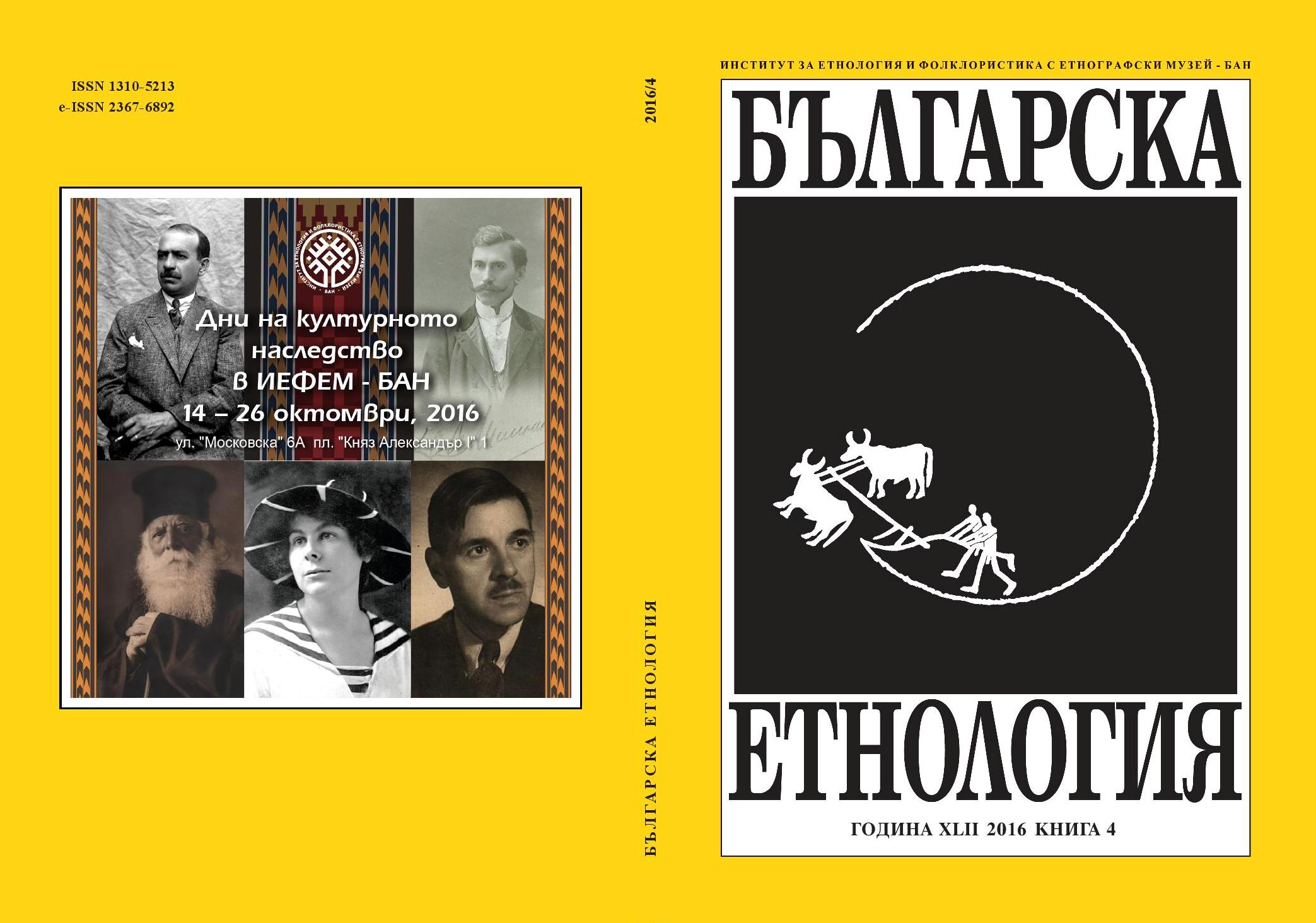
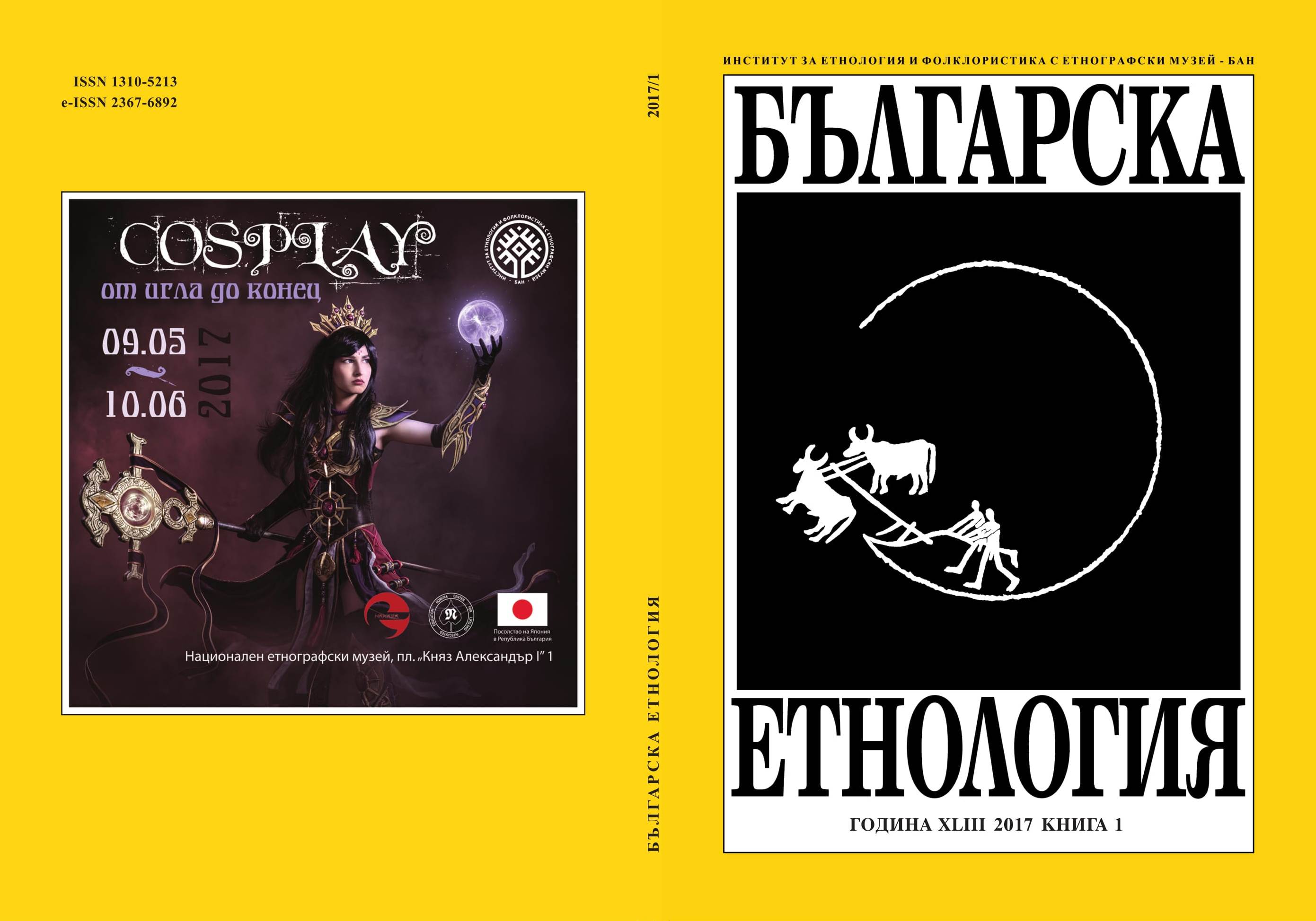
In the folklore of many peoples, the luminous bodies and phenomena are related tothe traditional concepts of the world structure. In the Bulgarian popular astronomythe Milky Way is seen as a Straw Road. The folklore texts present the “road” as both aborder and a bond between the “own” and the “alien” space, between the earthly andthe “divine” world. It is a process of movement in the mythological space but it couldalso be a place where the worlds in this space meet. Such development of the conceptof the “road” in the Bulgarian popular tradition is related to liminal rituals typical ofcalendar festivals including Christmas.
More...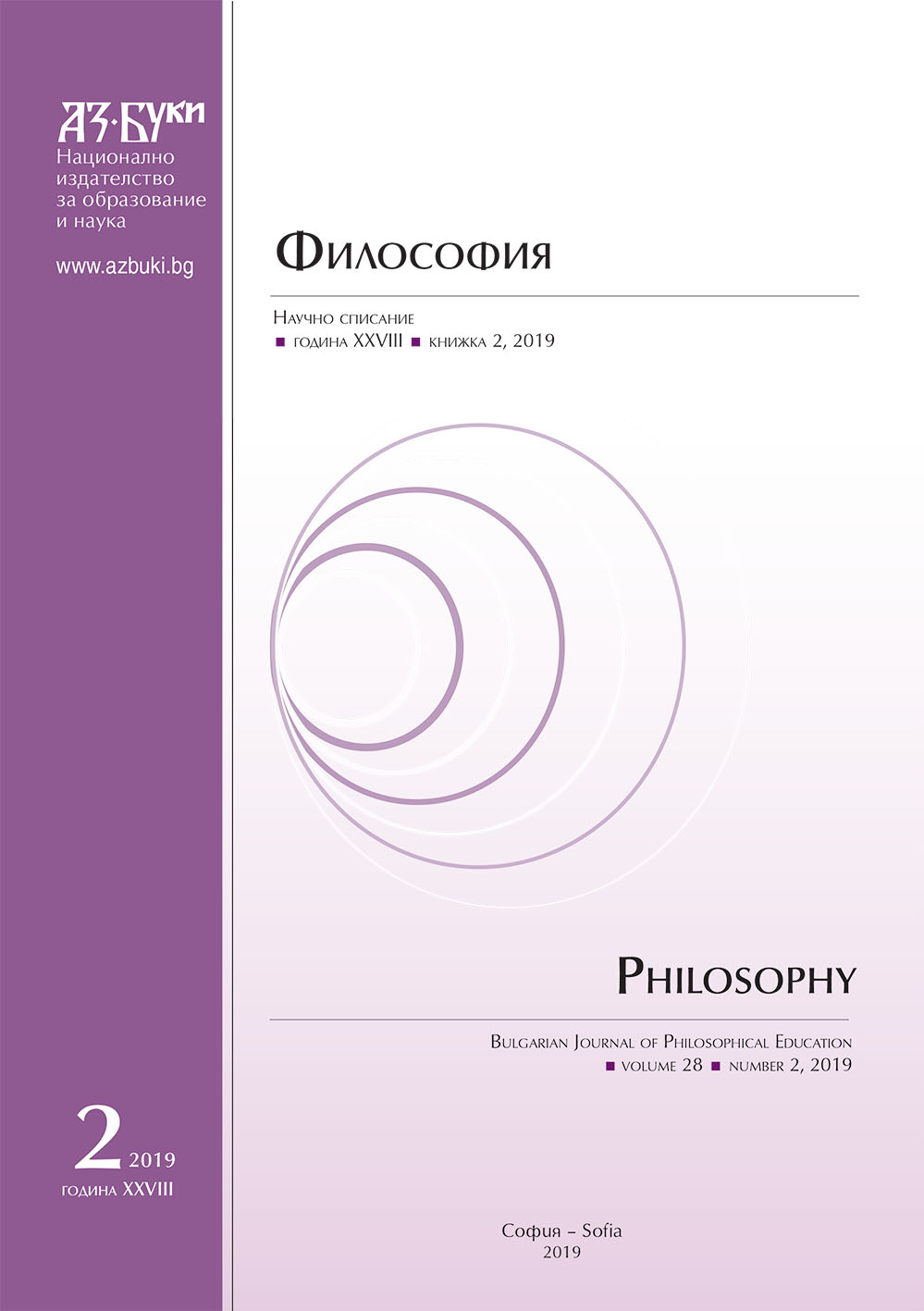
The debates about the relation between the national and European identity have recently gained a new impetus as a result of the growing national populism within the EU. In this regard, the article aims at elaborating the points of resemblance and dissonance between the identity-patterns of the two collective identities construction. In addition, it raises the question about the relation between national and European identity – do they compete with each other or they are parts of a bigger postmodern identity mosaic? In the first part of the research the main structural elements taking part in the National identity construction are discussed making a parallel with the European identity composition. In the second part of the text a more detailed analyses on the ethnic and civic model of identity construction is offered revealing two levels at which European identity is being created. Given that the majority of the academic work on the topic is more statistically or case orientated the article might be of interest due its fundamental approach.
More...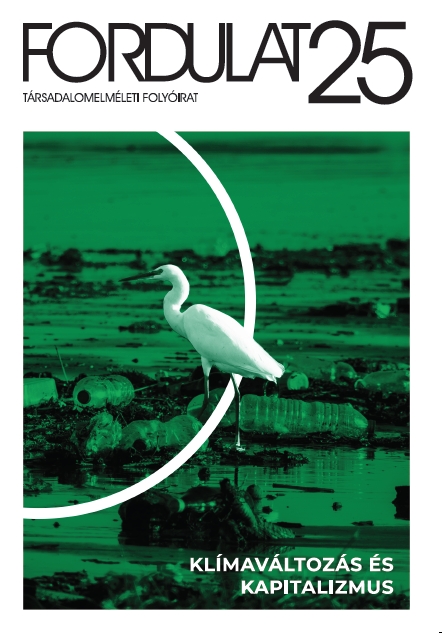
Rebecca Solnit has published her book "A Paradise Built in Hell" ten years ago. Its main idea was originally formulated in 2005 in an essay published on the day when Hurricane Katrina reached New Orleans. Rebecca Solnit is writer, historian and activist living in San Francisco; she has been working in various environmental, anti-war, human and women's rights movements since the 1980s. She has published 17 books so far and is a regular author of Guardian and Harpers' Magazine. In her works she continues the tradition of American progressive public intelligentsia: although she relies on historical facts and social science research, she primarily outlines perspectives to expand sociological imagination (Mills 1959) on challenges that cannot be solved by the social knowledge produced within the current social order.
More...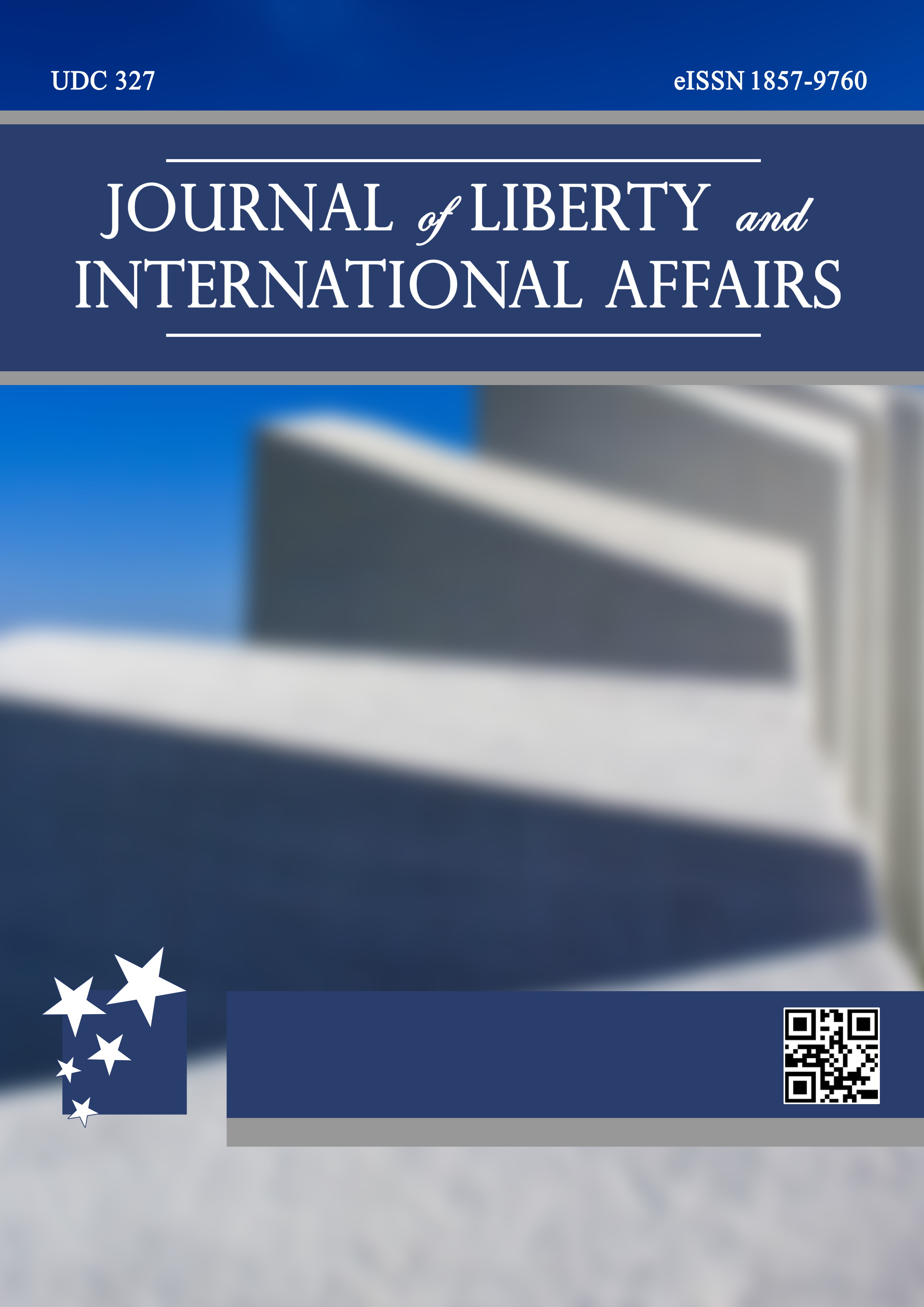
The issue of gender justice has drawn the attention of gender scholars as does gender equality a justice or civilization. Because of this, the paper examined women and gender equality justice or civilization. In discussing these gender issues, several documents, reports, newspapers, magazines, archives, articles, journals, among others, were systematically reviewed to support the argument. Two theories were used in supporting the argument. These are Islamic Feminist and Liberal Feminist theories. The assumptions of these theories centered on gender equality and gender justice in society. The study found that gender equality is not civilization but justice. This is of the fact that both men and women are born equal and need equal justice for the development of the nation. The paper recommended that men and women should be given equal opportunity in all aspects of life in order to ensure gender justice. Parents and religious leaders should adhere to the principles of gender equality for the betterment of society.
More...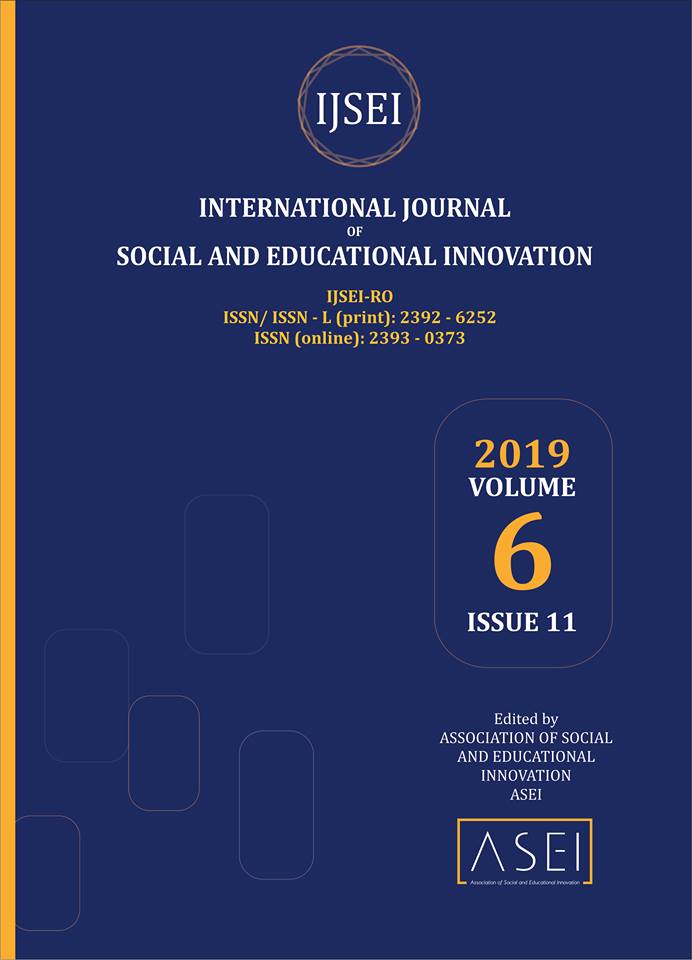
The constitutional changes of 1989 in Kosovo, in addition to physical, political andpsychological pressure, exerted social pressure through job dismissals. Job dismissalsbecame a “normal” process, becoming a common way of exercising social pressure.In all these impossibilities in front of which a whole society is placed, self-organization oropposition through self-acting is expressed.In this course, the collapsed life on every sphere, and precisely this collapse burdened evenmore the daily life of these citizens, imposing reflection on these inabilities.While therepressive state was exclusive, degrading, and denigrating for a category of the society,precisely this category got self-integrated through resistance, which can not be calledotherwise but self-organization.In this flow, many subsequent developments came to the fore,such as the comprehensive mobilization of the society, so that individual tasks became selfvoluntarycollective duties and obligations.To this society, faced with such a situation, Solidarity was undoubtedly imposed in every areaof life, having the course from similarities, and “solidarity that comes from similarities is atits maximum when the collective conscience completely wraps up all our conscience andcomplies with it on all points” (Durkheim, 2004).
More...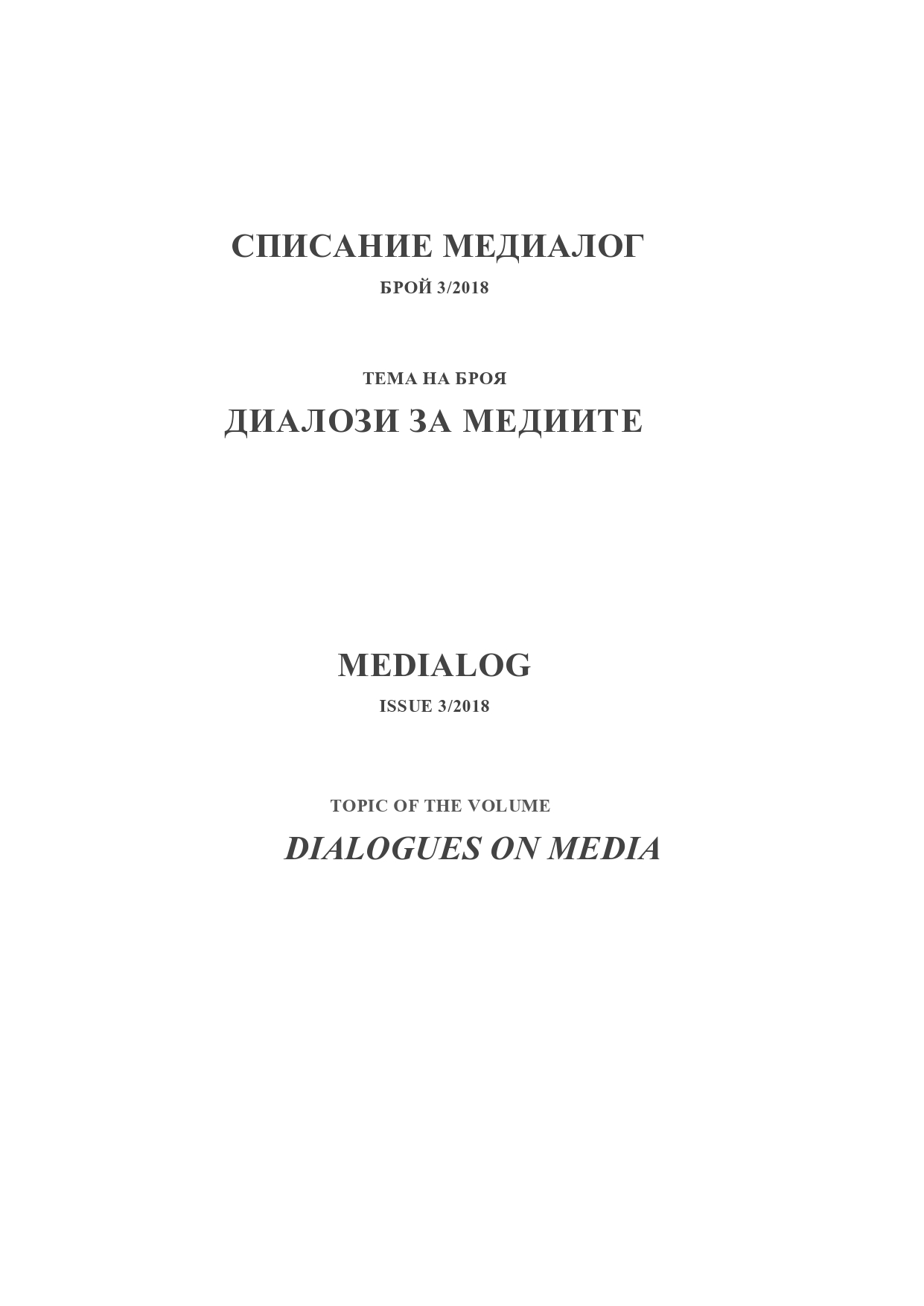
The text presents the state of the web TV in Bulgarian based on the results from the project ‘Web radio and TV in Bulgarian language’ funded by the Research fund of Sofia University with supervisor prof. DSc Snezhana Popova.It is hard to show precise data about the number of web TVs in Bulgarian or with Bulgarian addresses in 2017. The platforms do not use the term web TV, ‘online TV’. In 2017 three types of web TVs prove to be sustainable: regional, lifestyle and radio and TV. The announcement style TVs that present service information as well as the only regional station ‘Epohi’ TV have disappeared. The sports TV projects do not function (with the exception of the TV of FC ‘Levski 1914’). At least formally the ‘music online TVs’ are the largest number. However, the research showed that behind this title on some of the platforms exist websites with pornographic content. Most of them are announced as pop-folk music TVs. The main problem in making web TVs in Bulgarian is the ambiguity of who is expected to watch them. Apart from regional TVs everyone else say they a looking for their audience instead of building a message for a specific group.The text presents the state of the web TV in Bulgarian based on the results from the project ‘Web radio and TV in Bulgarian language’ funded by the Research fund of Sofia University with supervisor prof. DSc Snezhana Popova.It is hard to show precise data about the number of web TVs in Bulgarian or with Bulgarian addresses in 2017. The platforms do not use the term web TV, ‘online TV’. In 2017 three types of web TVs prove to be sustainable: regional, lifestyle and radio and TV. The announcement style TVs that present service information as well as the only regional station ‘Epohi’ TV have disappeared. The sports TV projects do not function (with the exception of the TV of FC ‘Levski 1914’). At least formally the ‘music online TVs’ are the largest number. However, the research showed that behind this title on some of the platforms exist websites with pornographic content. Most of them are announced as pop-folk music TVs. The main problem in making web TVs in Bulgarian is the ambiguity of who is expected to watch them. Apart from regional TVs everyone else say they a looking for their audience instead of building a message for a specific group.
More...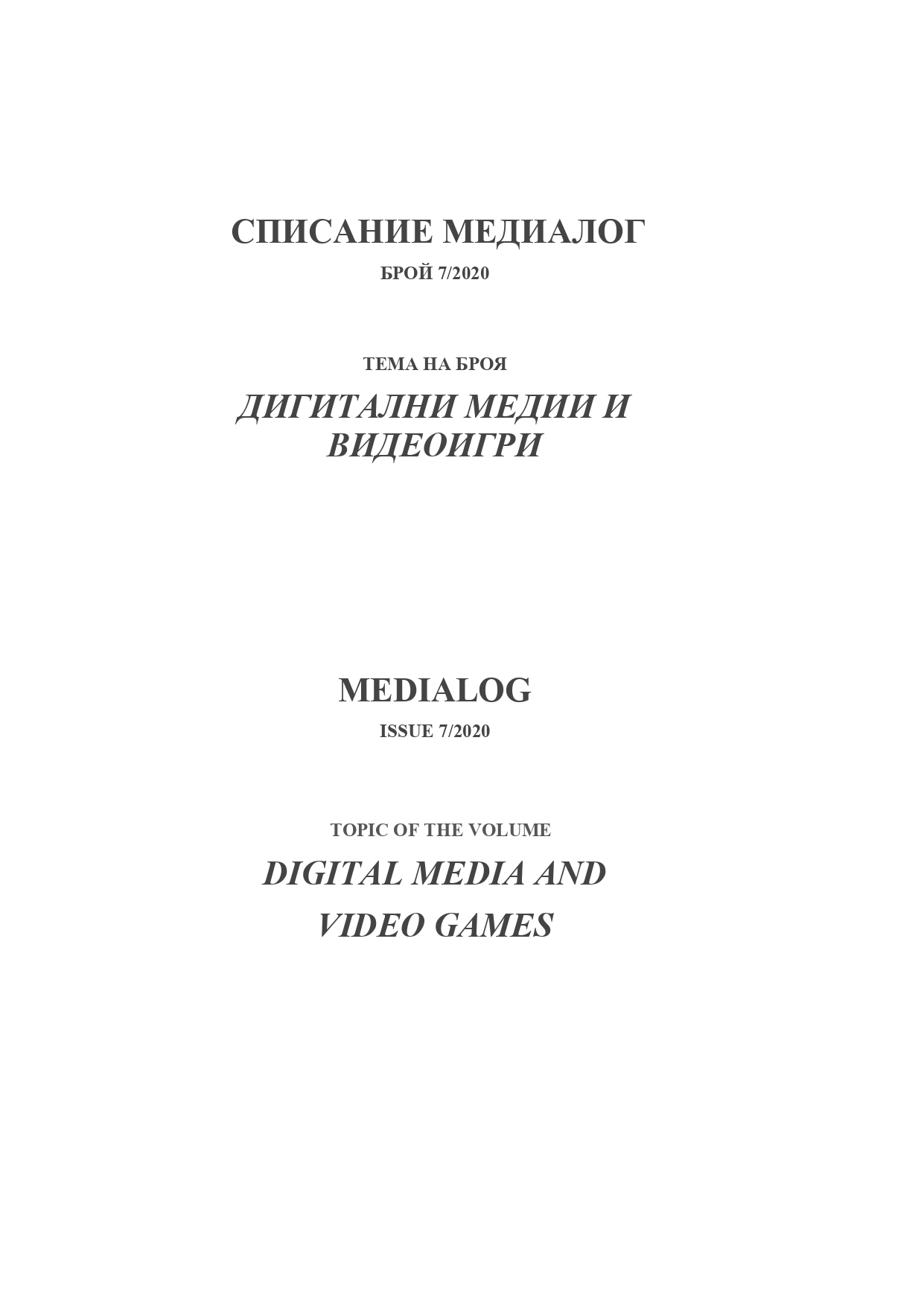
The system of protection of copyrights and related rights within the European Union is rapidly developing with putting forward of new assessment rules to protected content in digital environment. Changes occurred at the Directive (EU) 2019/790 of the EP and of the Council of 17 April 2019 refer to establishing of a brand-new retated right of the press publications publishers concerning digital issues, and also to harmonized legal protection for the press publications when used online by information society services providers. There appears necessity of licensing of the online use of publications of new providers, such as news aggregators and media clipping services.
More...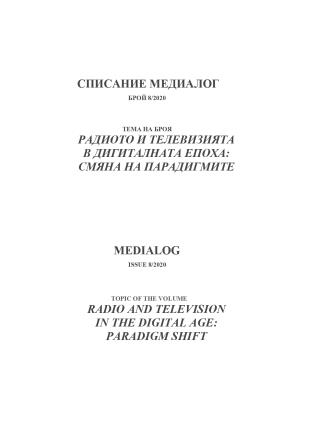
A review of the book " A Pillar of Democracy on Shaky Ground. Public Service Media in South East Europe”, published by Konrad-Adenauer-Stiftung Media Programme South East Europe. The book gives an overview of public service media in the ten countries covered by the Media Programme of the Konrad-Adenauer-Stiftung (Albania, Bosnia and Herzegovina, Bulgaria, Kosovo, Moldova, Romania, North Macedonia, Serbia, Croatia and Montenegro) plus Germany.
More...
The question of how rising atavistic nationalism will affect democracies worldwide is an essential one of our time. In this paper, I focus instead on conducting a comparative historical analysis of atavistic nationalism in two unrecognized states: North Cyprus and Taiwan. I argue that the democratic crisis of our times is, in its essence, economic and has been precipitated by the failure of democracies to build domestic capacities to support democratic values. Furthermore, I posit that engaging populaces at the local political level will prove essential to preserving democracies around the world. I conclude by underlining that atavistic nationalism is indeed a significant threat to regional and global peace and requires further co-operation on trade and governance, and should be engaged at the local level. Lastly, I suggest that co-creating local cultures that will act to soften atavistic nationalism, which feeds off the perception of threats and fear.
More...
The intense and dichotomous relationship between orientalism and classicism that has been created over the last decades of the XX century, reaches new dimensions through the rapid scientific growth, the discoveries of new historical sources and artifacts, and, most importantly, through the paradigms change in many scientific disciplines. This development is also influenced by the rapid and multifaceted societal transformations in the intensively globalizing world of the new millennium. In this context, the paper explores the new understandings of these two important conceptions in the research of the past, and their redefined scope and relation in the light of the globalization theories and through the paradigm of ancient globalization.
More...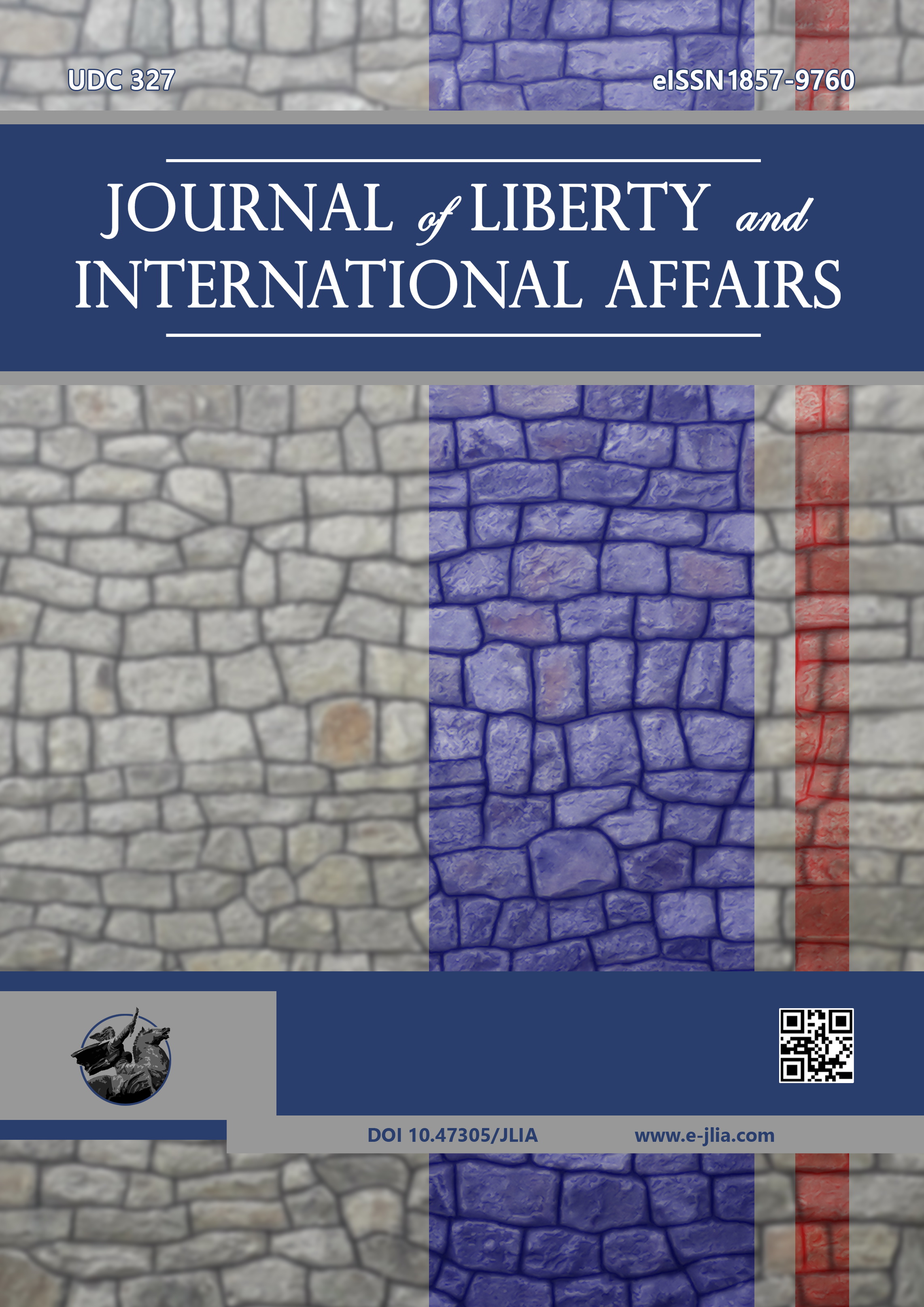
The COVID-19 has renovated the debate about global health governance. Many scholars have proposed that the World Health Organization (WHO) should assume the position of a central coordinator with hierarchical powers. This article presents four main objections to this project: the problems with ‘one-size-fits-all’ policies, the heterogeneous distribution of power within multilateral institutions, the risks of crowding out parallel initiatives, and the democratic principle. Testing the WHO’s ability as a provider of technical information, an OLS regression, analyzing the first year of the coronavirus health crisis, from January 2020 to January 2021, in 37 countries reported in the World Values Survey Wave 7, shows a negative relationship between the population trust in the WHO and the number of cases of COVID-19. This indicates that there is a valid case for countries to strengthen the WHO’s mandate, but not to create a hierarchical global health structure.
More...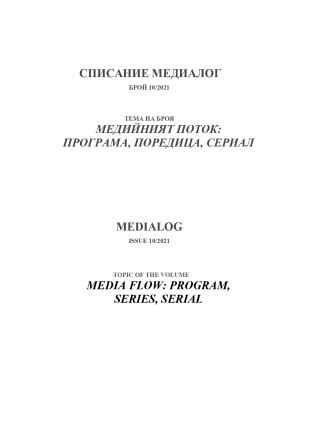
Modern Mimesis: Self-Reflexivity in Literature is a passionate defence of philology that traverses the distances from Ancient Hellas to present-day Japan, from Ulysses to robots. This movement follows a logic described by the author as reconceptualization, and creates conceptual nodes configured through horizontal and vertical, temporal and spatial self-reflexive reduplications. The broad arc from the libraries of Alexandria and Pergamum to the mimetic valleys of robotics thus turns out to be underpinned by the reconceptualization of the ancient dispute between ‘analogy’ and ‘anomaly’, turning any attempt at ordering into an ‘endless series of rearrangements’.
More...
In the end of September 2021 one of the celebrations of the academic community took place – colleagues and friends congratulated prof. Lilyana Deyanova with the publishing of the anniversary anthology ‘Time and Memory’. Compilers and organizers of the academic celebration are Maya Grekova, Petya Kabakchieva, Momchil Hristov, Milena Yakimova.
More...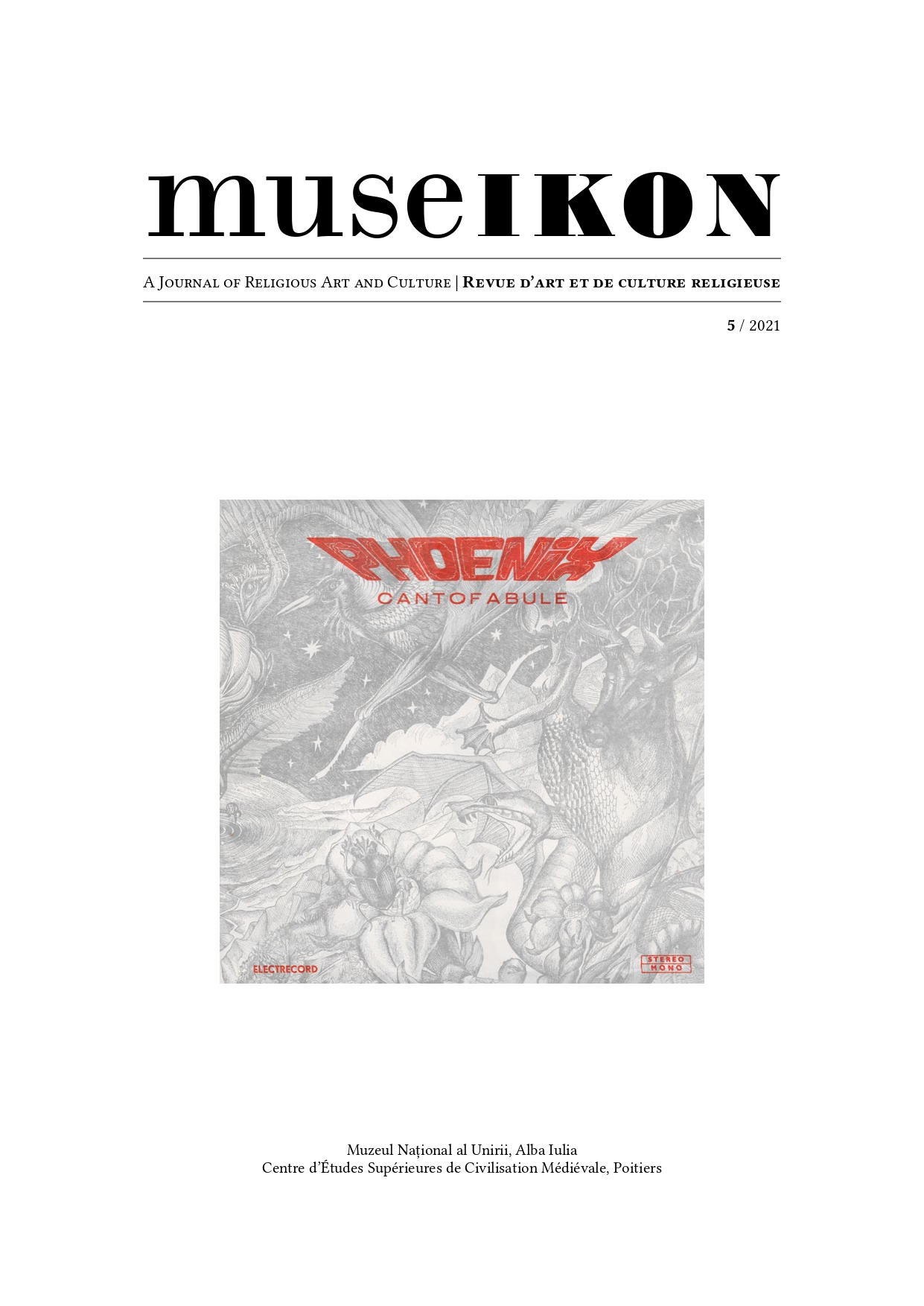
Andrei Ujică est né à Timişoara en 1951. Il a étudié les lettres modernes à l’Université de Timişoara avant de poursuivre ses études à Bucarest puis à Heidelberg. Depuis 1968, il publiedes textes en prose. Il a été impliqué dans la création desdeux lp du groupe Phoenix – Mugur de fluier (‘Bourgeon deflûte’, 1974) et Cantafabule (‘Chantefables’, 1976). En 1981, ila immigré en Allemagne. À partir de 1990, il s’oriente vers lecinéma et codirige avec Harun Farocki Videogramme einer Revolution (‘Vidéogrammes d’une révolution’, 1992) et Kameraund Wirklichkeit (‘Caméra et réalité’, 1992) – deux filmssur la révolution roumaine de 1989. Out of the Present (1995) raconte l’histoire du cosmonaute Sergueï Krikalev, qui apassé dix mois à bord de la station spatiale Mir, alors que surterre, l’Union soviétique cessait d’exister. Suivent le court métrage2 Pasolini (2000) et le long métrage Unknown Quantity(2005). Depuis 2001, il est professeur à l’Université de Karlsruhe.Il a fondé le ZKM (Zentrum für Kunst und Medien) Filminstitut.‘L’Autobiographie de Nicolae Ceauşescu’ (2010), présentéeen sélection officielle à Cannes, est un long métrage demontage où les images d’archive sont présentées selon la perspective du dictateur. Actuellement, il prépare un film partiellementbasé sur des images d’archive et consacré auxévénements des 15 août 1965, date du célèbre concert des Beatles sur Shea Stadium à New York
More...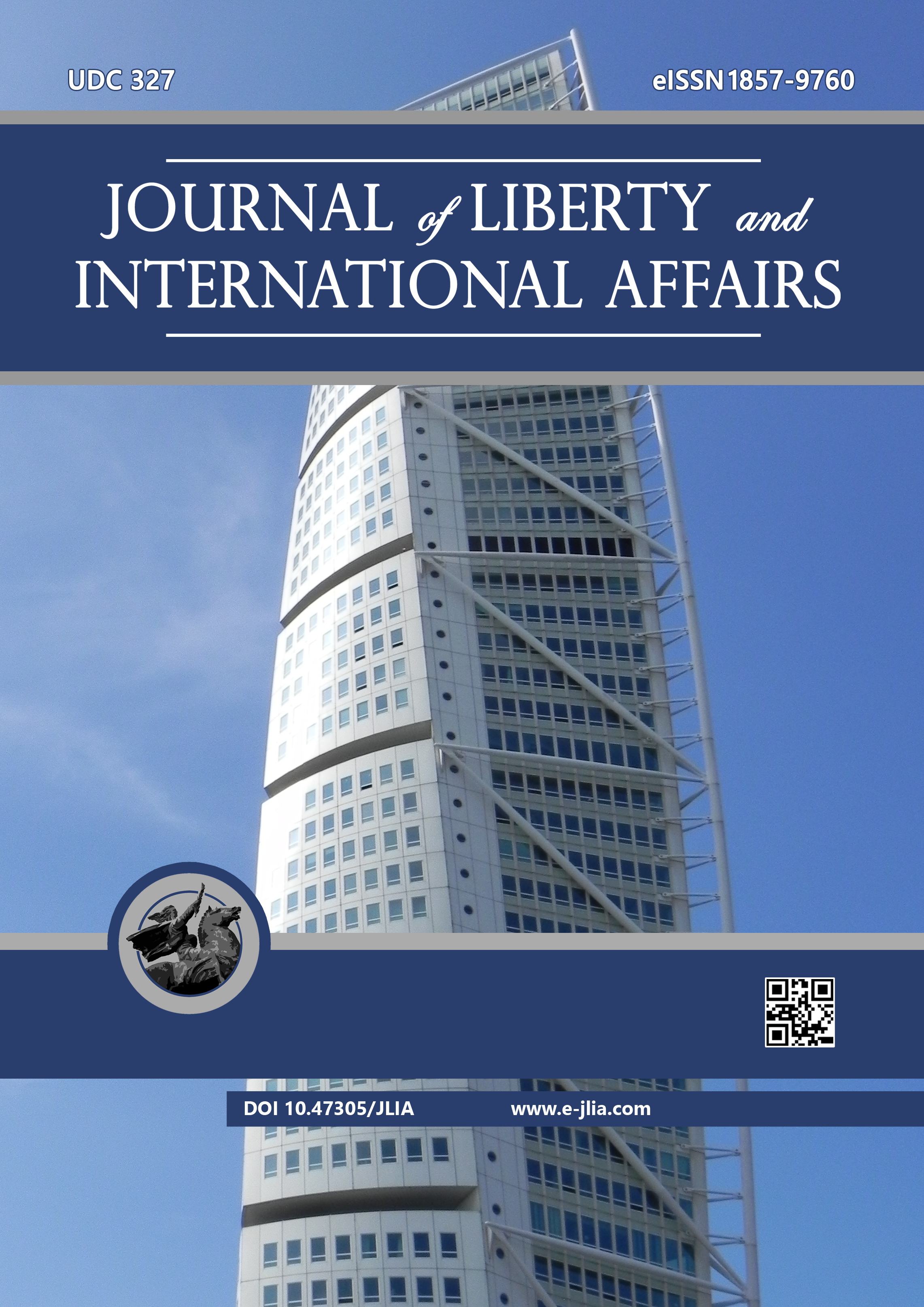
Donald J. Trump, one of the 2016 US presidential candidates, is thought to have benefited from political fact-doctoring in his attempt to diminish his adversary's reputation using the post-truth phenomena. This research aimed to identify and analyze post-truth phenomena that infiltrated the political system, media, and the American people during Donald J. Trump's leadership. This study used a qualitative approach with a critical thinking analysis method. The findings found that individual rationality's post-truth disrupted and then directed to online information impulses, in which people tended to seek information that supported their own opinions, particularly on issues connected to Donald J. Trump's leadership in all sectors of policy, including irrelevant facts or reality and the use of language increasingly exploited by hyperbole without a clear basis reference.
More...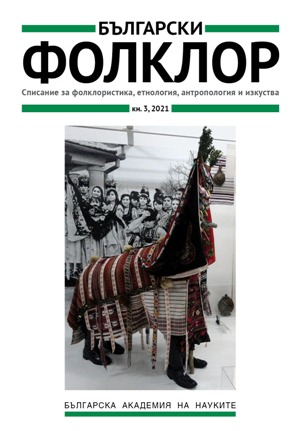
For almost three decades now, there is an ongoing, but also inconsistent search for a new conceptual framework for the study of ethnicities and identities. Against this background, the article offers an interpretation of a fundamental monographic text on this subject from the recent past, a contemporary evaluation of a book from the arsenal of ethnic/national dialectic theory. Written by an insightful connoisseur of culture and history, the book presented some innovative and provocative ideas about the relationship and the dynamic combination of the most important phenomena and characteristics of the ethnonational process. The author shares some thoughts about the ways in which these ideas can be interpreted from the point of view of today’s methodological explorations.
More...